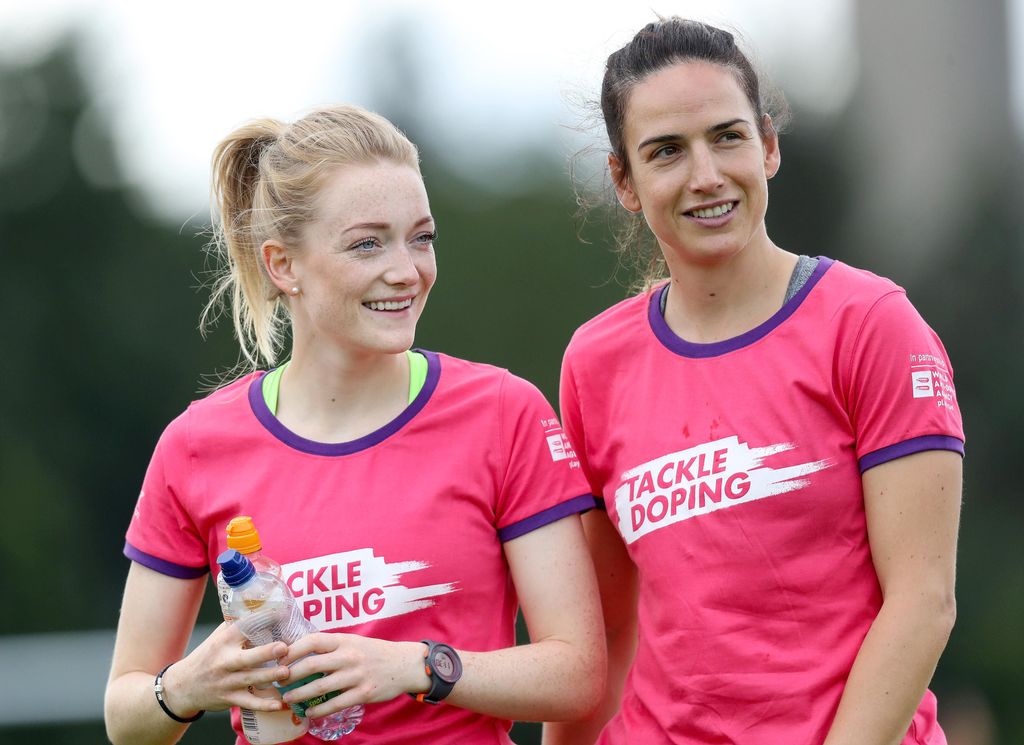World Rugby’s Referee Development Manager, Alhambra Nievas is confident that progress made in the support of female match officials can be maintained amid the COVID-19 pandemic.
No rugby is currently being played as countries across the globe remain in lockdown but the situation has not completely prevented green shoots of growth from appearing around the world.
Sudamérica Rugby announced its first official Women’s Referee Panel at the end of April, with its 12 representatives drawn from Brazil, Argentina, Chile, Uruguay, Colombia and Paraguay.
And in a bid to “not leave any union or region behind” during the crises, Nievas and her colleagues have implemented a Virtual High Performance Academy, aimed at both female and male match officials.
The programme, which began on 14 May, provides participants with technical content to review while Nievas, Alain Rolland, Paddy O’Brien and Craig Joubert conduct online sessions every fortnight.
Eight female referees, representing Belgium, Canada, Germany, Italy, Kenya, Samoa, USA and Zimbabwe, have been enrolled on the course.
“All the referees, male and female, are working together and this is a tool to [help us] be as well prepared as possible for the moment we will be back on the field,” Nievas said.
“We are really excited about this programme.”
Preparing for pinnacle events
The Virtual High Performance Academy leads on from the work done at the first ever Women’s High Performance Academy in Stellenbosch 12 months ago.
Several of those who travelled to South Africa are involved in the current programme, and with a Rugby World Cup and Olympic Games on the horizon in 2021, Nievas believes it is imperative that their development is not negatively impacted.

The Spaniard added: “This is a good opportunity to invest this time to go through the key areas of the game and agreed guidelines, preparing us as match officials to be more consistent when rugby restarts.
“Especially for World Rugby, considering that we have the Olympics and Rugby World Cup next year. They are the two pinnacle rugby events, so it is important to keep engaging and working with current panels.
“This is why we are very conscious and everyone has been proactive in how we can work through these exceptional times.”
Although the Virtual High Performance Academy is not aimed at professional match officials, Nievas is full of praise for the work being done by the senior referees on World Rugby’s panels.
Aimee Barrett-Theron, Amy Perrett, Hollie Davidson, Joy Neville, Rebecca Mahoney and Sara Cox have all earned either full- or part-time contracts with their unions, having gained experience officiating the biggest competitions in rugby — male or female.
Nievas revealed that work was being done to keep those match officials “engaged and in touch with each other” through online and technical sessions.
Promoting culture change
“That is important because when people usually see us on the field we are ‘alone’, but we are not and operate as a team,” she explained.
“At this difficult time, top senior referees are also leading, sharing, contributing and engaging with our squads. That is great to see.
“We are working with our current sevens and 15s World Rugby panels, and then we are also doing several development projects through the regions.”
Barrett-Theron, two-time RWC winner Mahoney and Neville were all fast-tracked into international refereeing having enjoyed successful playing careers at test level.
Current Black Fern Selica Winiata, a RWC 2017 winner, and former Canada full-back Julianne Zussman are both hoping to follow in their footsteps having been identified by World Rugby due to their knowledge, skills, conditioning and high-performance experience.
“It is also important to generate opportunities in order that more female referees are seen as match officials, not as female match officials,” Nievas said.
“And [match officials] refereeing rugby, not only refereeing women's games.”
Nievas believes there must be a “culture change” across unions and regions to ensure that opportunities for female match officials continue to improve. But she believes that such prominent women in the game also have an important role to play.
“All these examples are our role models for the next generation coming, and I think it's very important that we keep moving forward together, having this conversation and this culture change.”